Bloomington protest against Trump-era policies draws ties to local issues, remembers ‘good trouble’
On Thursday (July 17), at least 300 people crowded onto the southeast corner of the Monroe County courthouse grounds to protest actions taken by U.S. President Donald Trump’s administration. Several community leaders addressed the gathering.
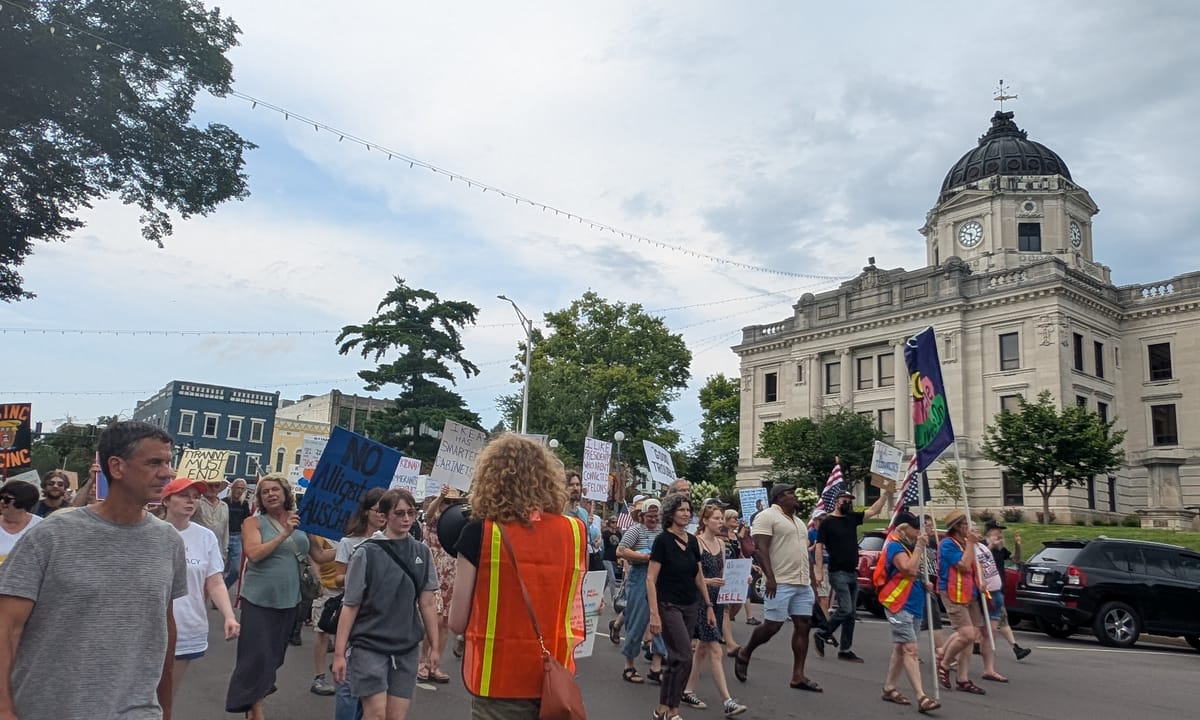
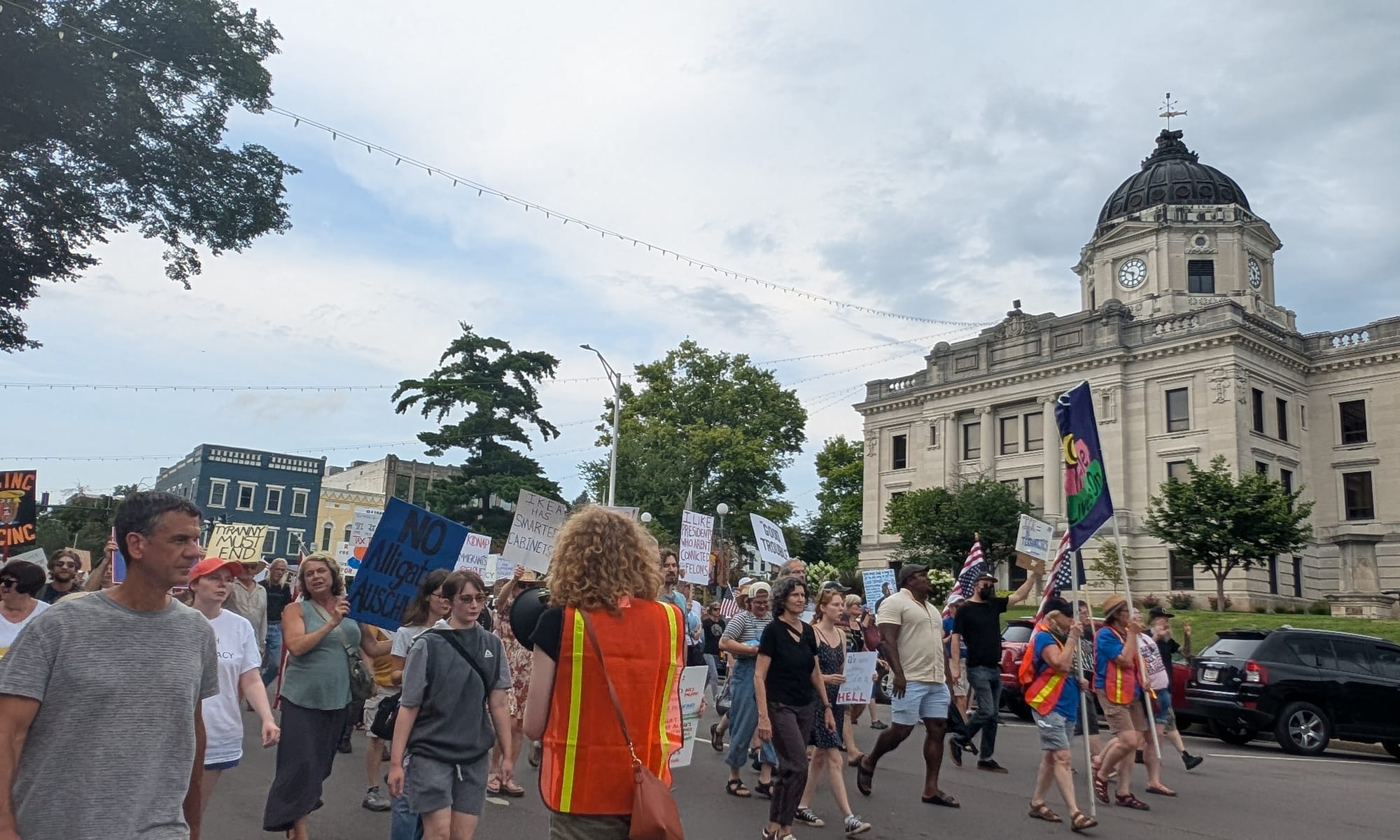
On Thursday (July 17), at least 300 people crowded onto the southeast corner of the Monroe County courthouse grounds to protest actions taken by U.S. President Donald Trump’s administration during the first six months of his term.
Among them was an executive order this April that said the U.S. Attorney General had to publish a list of local jurisdictions that obstruct the enforcement of federal immigration laws. Monroe County made the list. Last year, Indiana’s attorney general sued the Monroe County sheriff over that issue, and the litigation is still pending.
Several community leaders addressed the gathering, which was organized by the 50501 Movement, the Monroe County branch of the NAACP, and the League of Women Voters, among others.
Following an initial round of remarks, the crowd completed two laps of a route that led up Walnut Street, turned left at 7th Street, rounded the corner where the Monroe County jail stands, then down College Avenue back towards the courthouse.
The choice of a Thursday, as opposed to time on the weekend, was conscious—it marked the fifth anniversary of John Lewis’s death, and was part of a national day of action. Lewis was a civil rights leader and longtime U.S. congressman, who championed nonviolent protest and made “good trouble” a part of the American politician lexicon.
Bookending the set of speeches on Thursday was Jim Sims, the former Bloomington city councilmember and current president of the Monroe County branch of the NAACP. Sims led off with a moment of silence to honor Lewis’s memory.
Sims then told the crowd that the plan that the Trump administration is following was laid out in Project 2025, and that “we tried to educate people what was coming.” Sims said, “We denounce the attacks on our civil rights, we denounce attacks on our voting rights, we denounce attacks on the free speech rights, and we denounce the attacks on our LGBTQ+ rights.” Sims continued, “We further denounce the attacks on our educational systems, on our health care for our working people, people with lower income.” Sims equated "attacks by the Trump administration on Black people and other marginalized communities" to “attacks on humanity.”
Sims wrapped up with a mention of Lewis’s famous phrase: “Never ever be afraid to make some noise and get in some good trouble.”
Most of the focus at Thursday’s rally was on national and state-level policy issues. But there were direct connections to local affairs, like the planning for the new Monroe County jail, and the dismantling of DEI programs at Indiana University.
Speaking about planning for the county’s new jail was Micol Seigel, who is an Indiana University history professor who is part of a group called Care Not Cages.
Seigel cited a study done by the local chapter of the NAACP in 2023, which she summarized as showing that “Black people are over-represented in our local jail by 681%.” Seigel compared the size of the planned new jail, which is around 500 beds, to the current population of the jail, which she pegged at around 220. “Why do we need 400 to 500 cages in our county right now?” Seigel asked.
Critics of the size of the planned new jail point to the fact that a report commissioned by Monroe County and received in 2021 projected a jail population of 311 prisoners in 2025, compared to the current figure which has been in the low 200s.
The next public meeting when the topic of the planned new jail is expected to see some debate is next Tuesday’s (July 22) county council meeting. That meeting is expected to include as a discussion item, a letter from Monroe County government to state legislators. The letter would ask for revisions to state tax law, to restore some of the tools that local governments previously had, before the enactment of legislation this year, to large capital projects.
Speaking at Thursday’s rally about the removal of DEI programs by Indiana University was Russ Skiba, IU emeritus professor with University Alliance for Racial Justice. Skiba called the university’s announcement on May 22 that it was closing DEI offices on campus ironic, because it came with a news release headline that started with “IU affirms student success …” The complete headline from the university’s release was “IU affirms student success focus, takes steps to comply with state and federal guidance.”
Skiba said, “We were told that IU was taking these steps, quote, ‘to ensure the university is fully compliant with state and federal laws and guidance regarding Diversity Equity and Inclusion.’”
At the same time, Skiba continued, “IU began scrubbing the mention of diversity equity and inclusion from all of its websites. Staff at DEI offices were fired. Despite inquiries by the media and IU faculty, namely me, the administration has still not said how many were fired. ”
A big focus of Skiba’s remarks was the idea of “anticipatory compliance” with requirements that do not yet actually exist. “Anticipatory compliance is complicity,” Skiba said.
One fear is that compliance with guidance on the national or state level on DEI is already, or could be, tied to funding. That’s the fear that was conveyed in a memo sent on Monday (July 14) to the city council by Bloomington mayor Kerry Thomson’s administration, about a decision not to create a new position in city government for a “chief equity officer.” The memo, which was sent by deputy mayor Gretchen Knapp, states in part: “Our Legal team has advised against creating a Chief Equity Officer position or any such programs, as it would put the City out of compliance with federal certifications required to continue to receive federal funding.”
Knapp’s memo came in the context of planning for the city’s 2026 budget, which has been going on for several months, but will get a substantial public airing starting with the city council’s first of four departmental budget hearings, currently set for Aug. 18.
Other speakers at Thursday’s really included: Lisa Schubert Nowling, lead pastor at Bloomington’s First United Methodist Church; Sandy Washburn with the 50501 Movement; Benjamin Robinson, IU professor of Germanic studies, with Jewish Voice for Peace; and Maddy Waters, an incoming IU freshman.
Waters read aloud an essay written by John Lewis shortly before he died. The concluding lines of Lewis’s essay are:
When historians pick up their pens to write the story of the 21st century, let them say that it was your generation who laid down the heavy burdens of hate at last and that peace finally triumphed over violence, aggression and war. So I say to you, walk with the wind, brothers and sisters, and let the spirit of peace and the power of everlasting love be your guide.
Photos: 'Good trouble' rally (July 17, 2025)
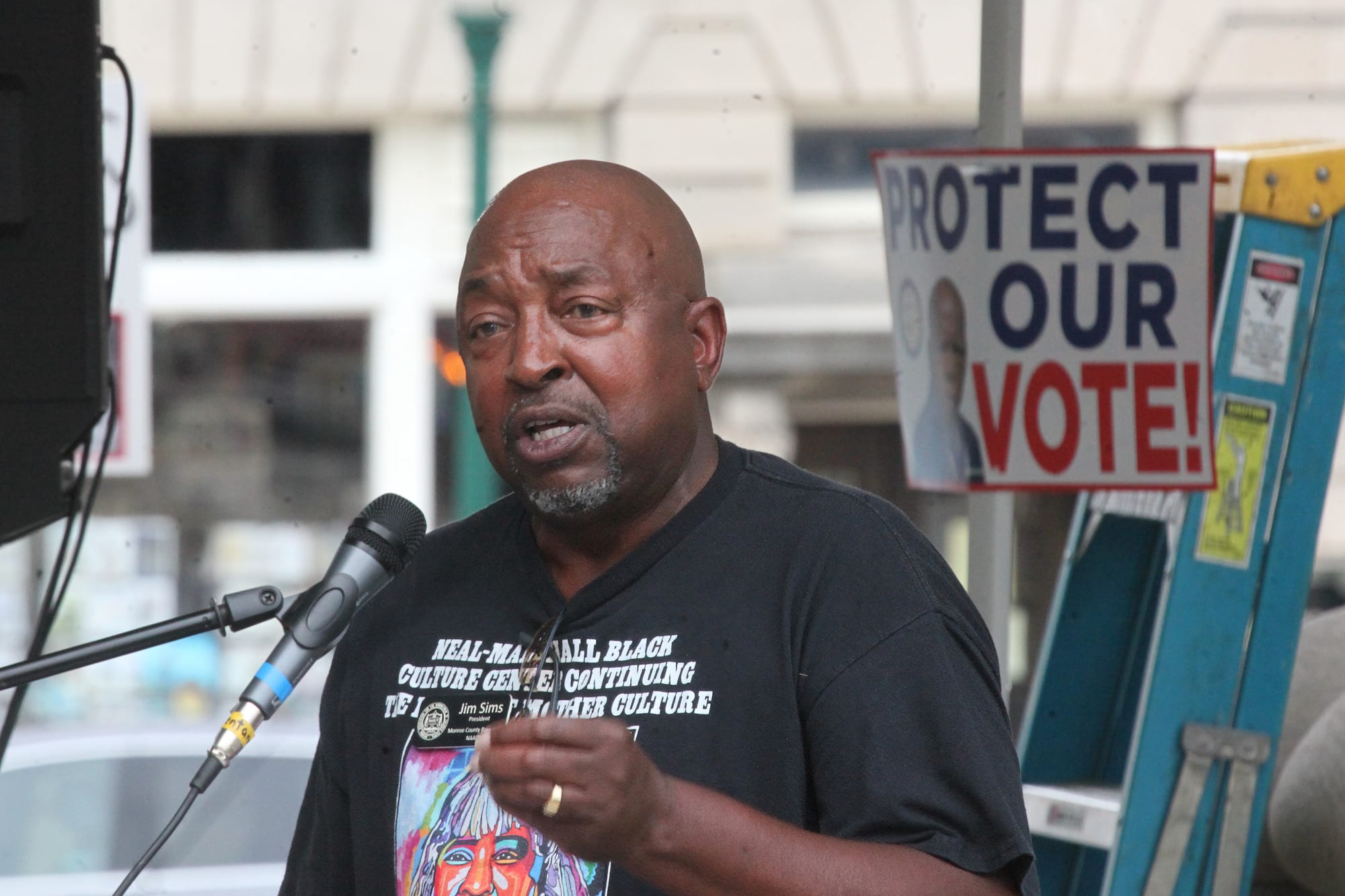
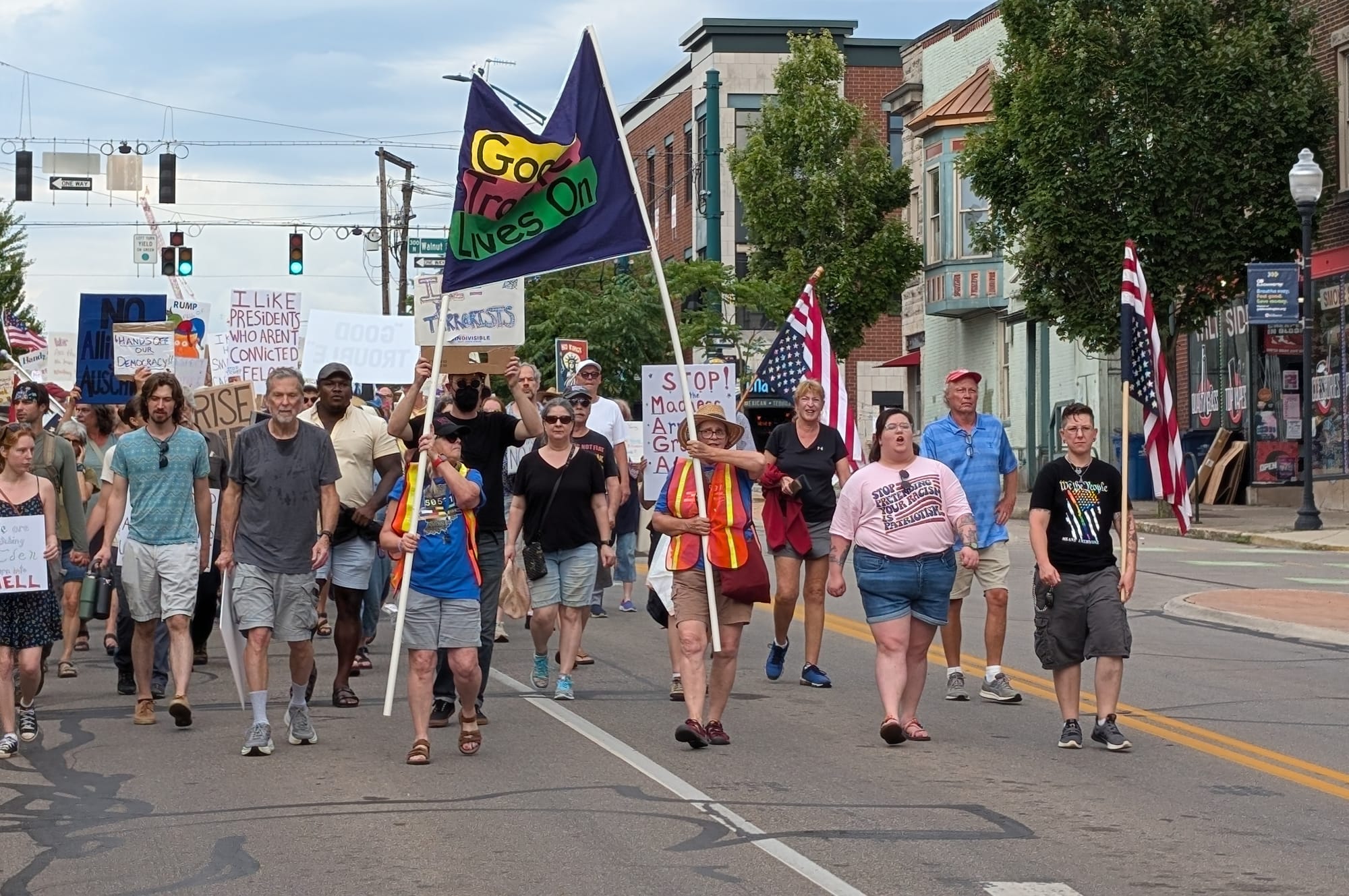
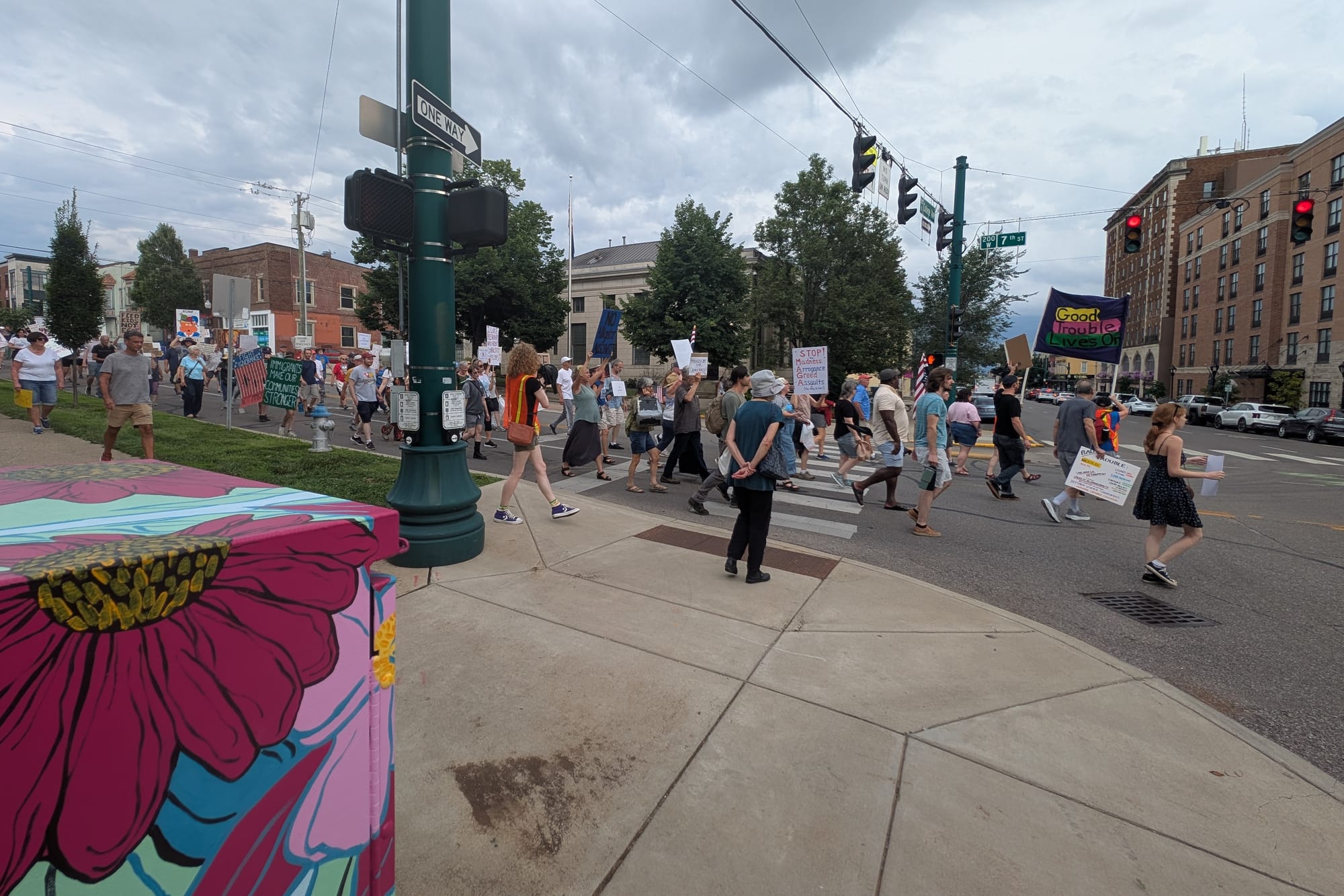
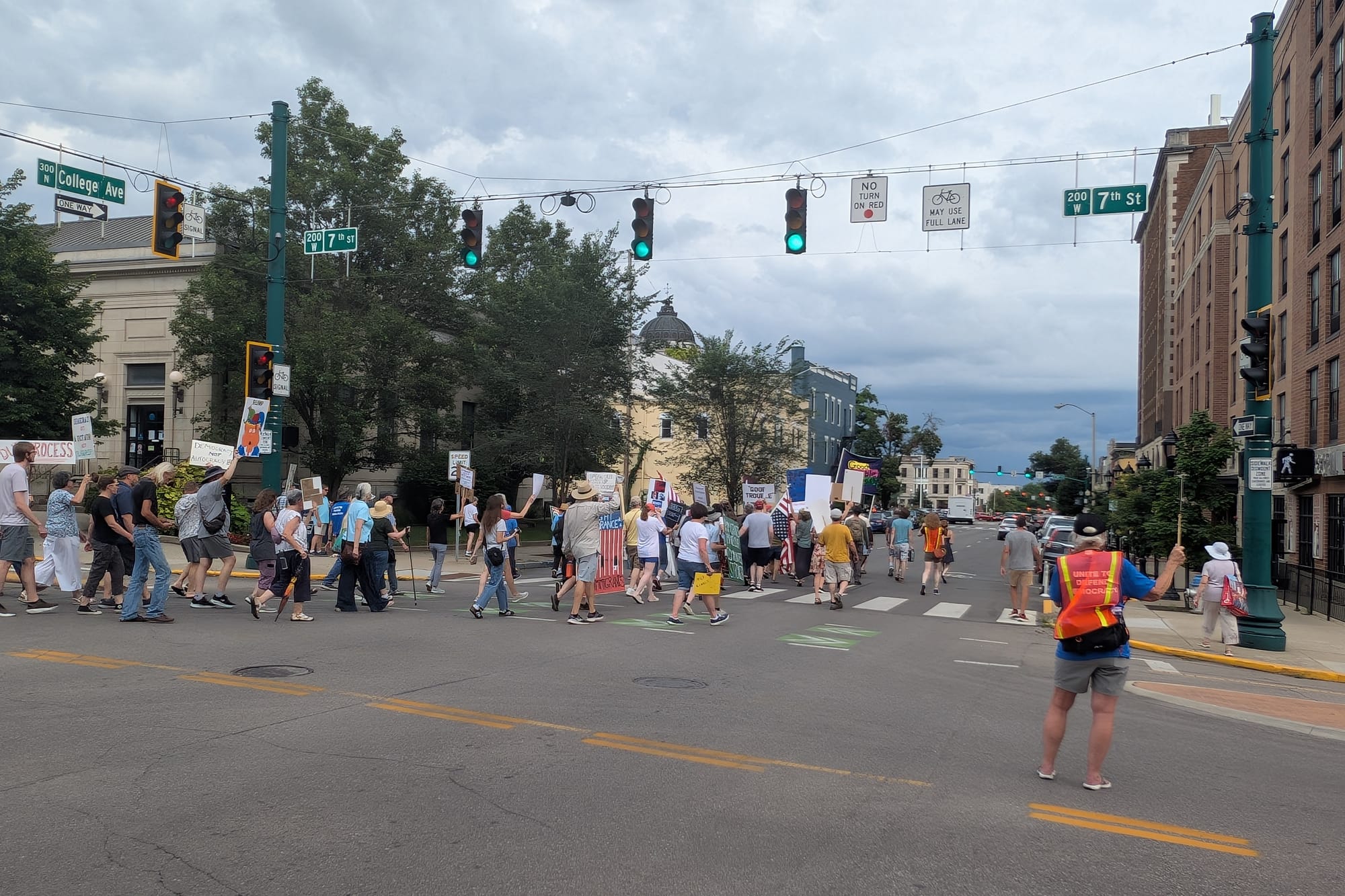
The rally marches west down 7th Street around the corner at College Avenue. (Dave Askins, July 17, 2025)
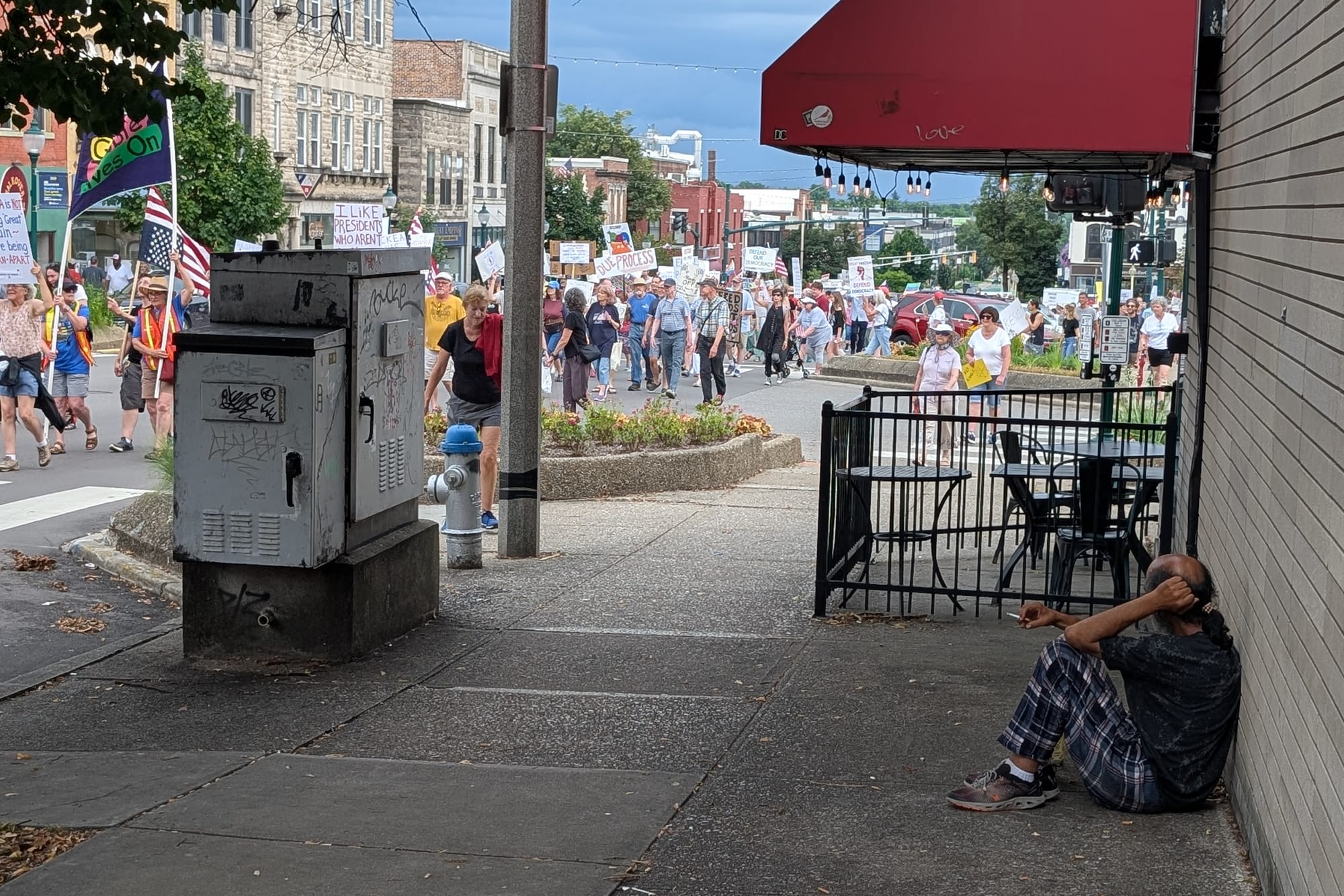
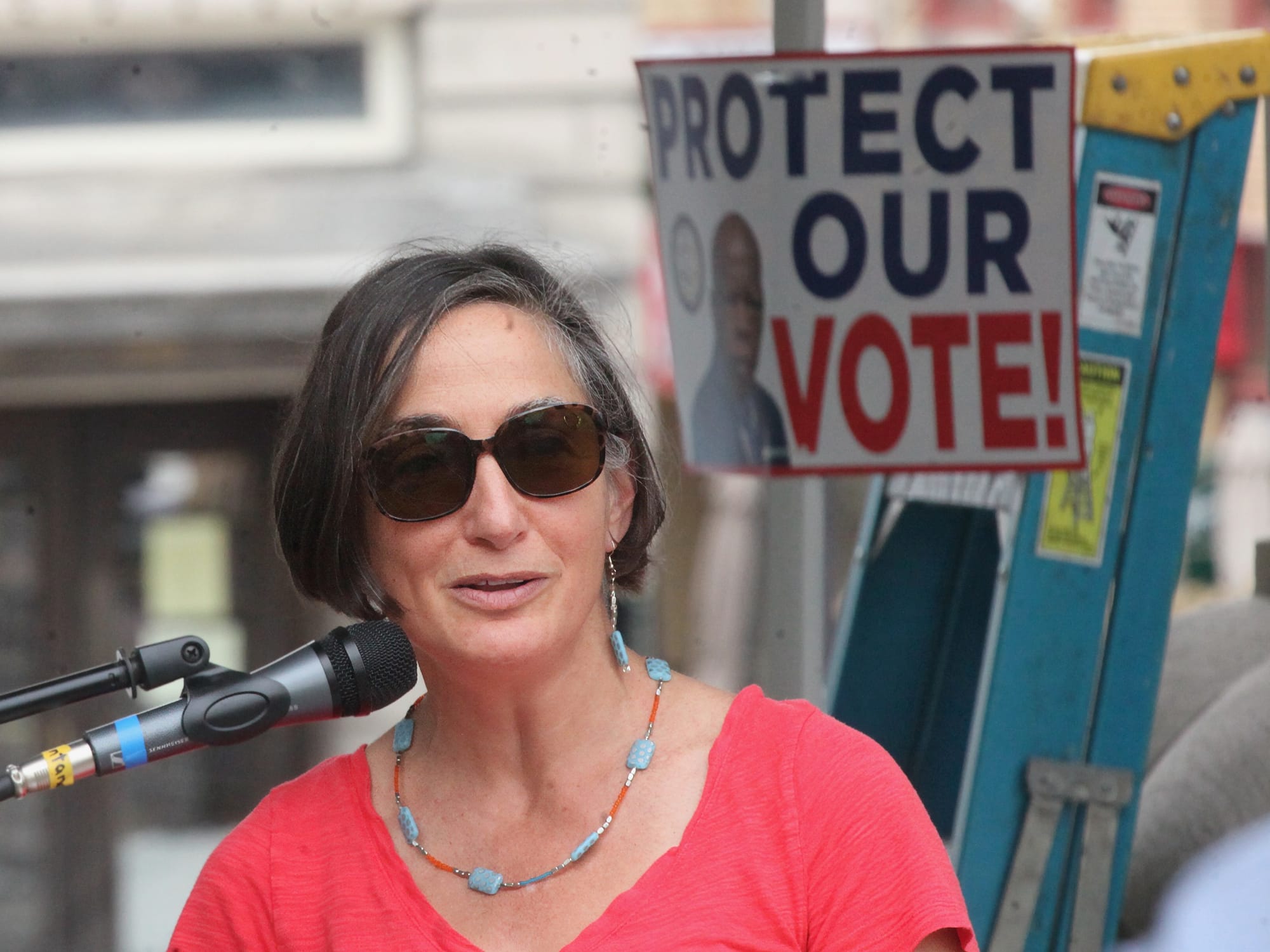
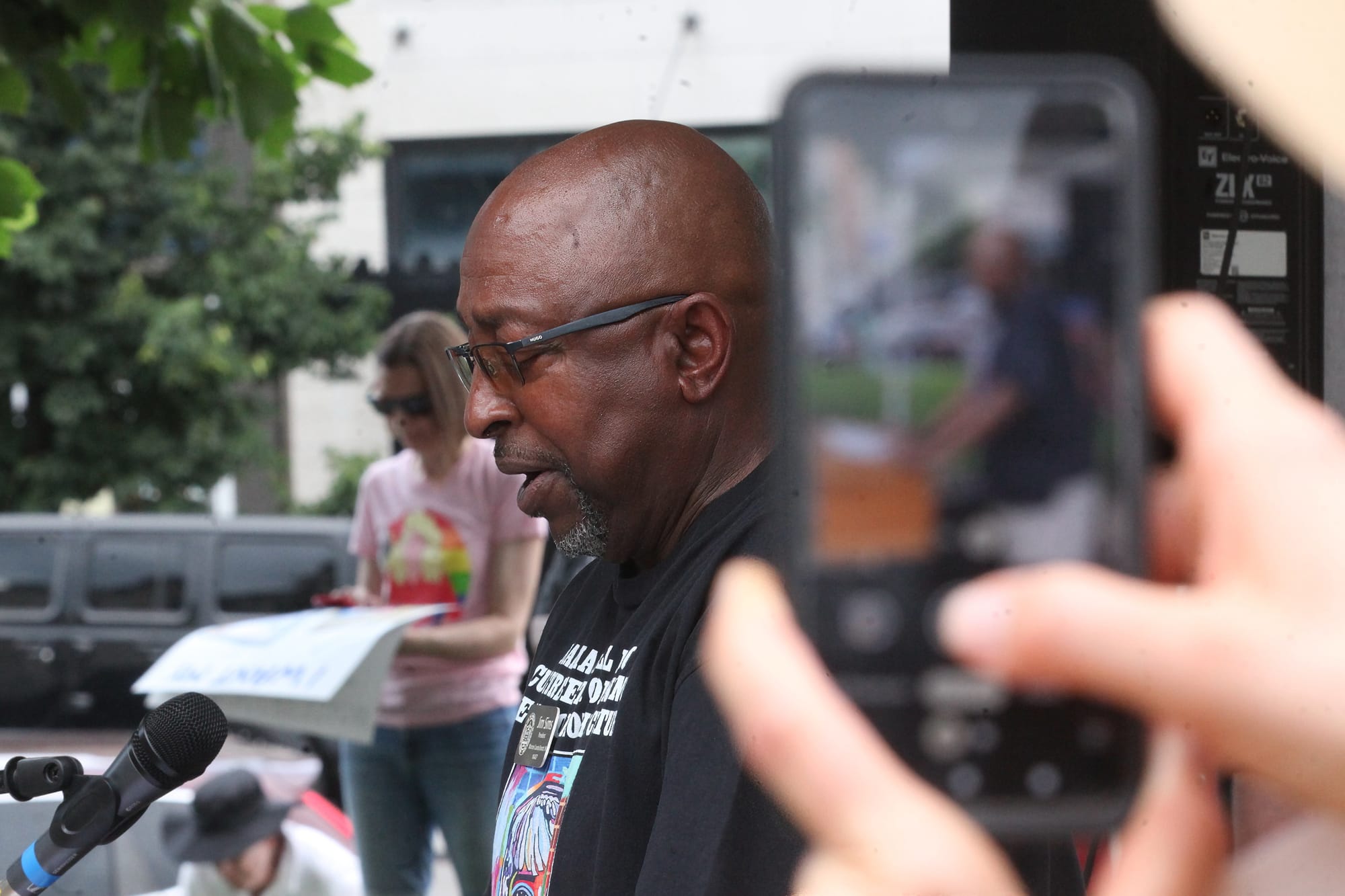
Left: Micol Seigel, who is an Indiana University history professor, and part of a group called Care Not Cages, addresses the crowd. Right: Jim Sims, former Bloomington city councilmember and current president of the Monroe County Branch NAACP, addresses the crowd at Thursday’s rally. (Dave Askins, July 17, 2025)
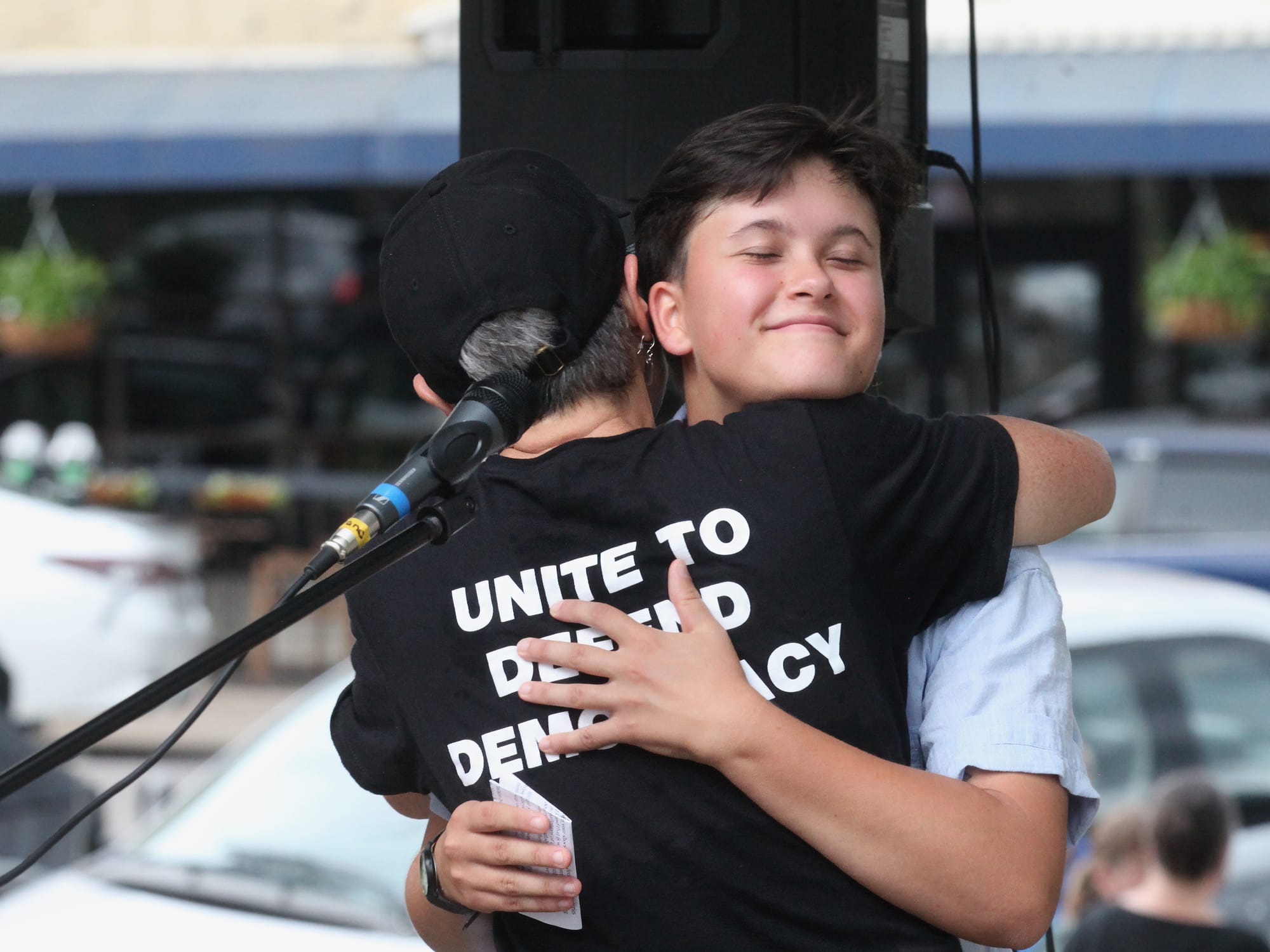
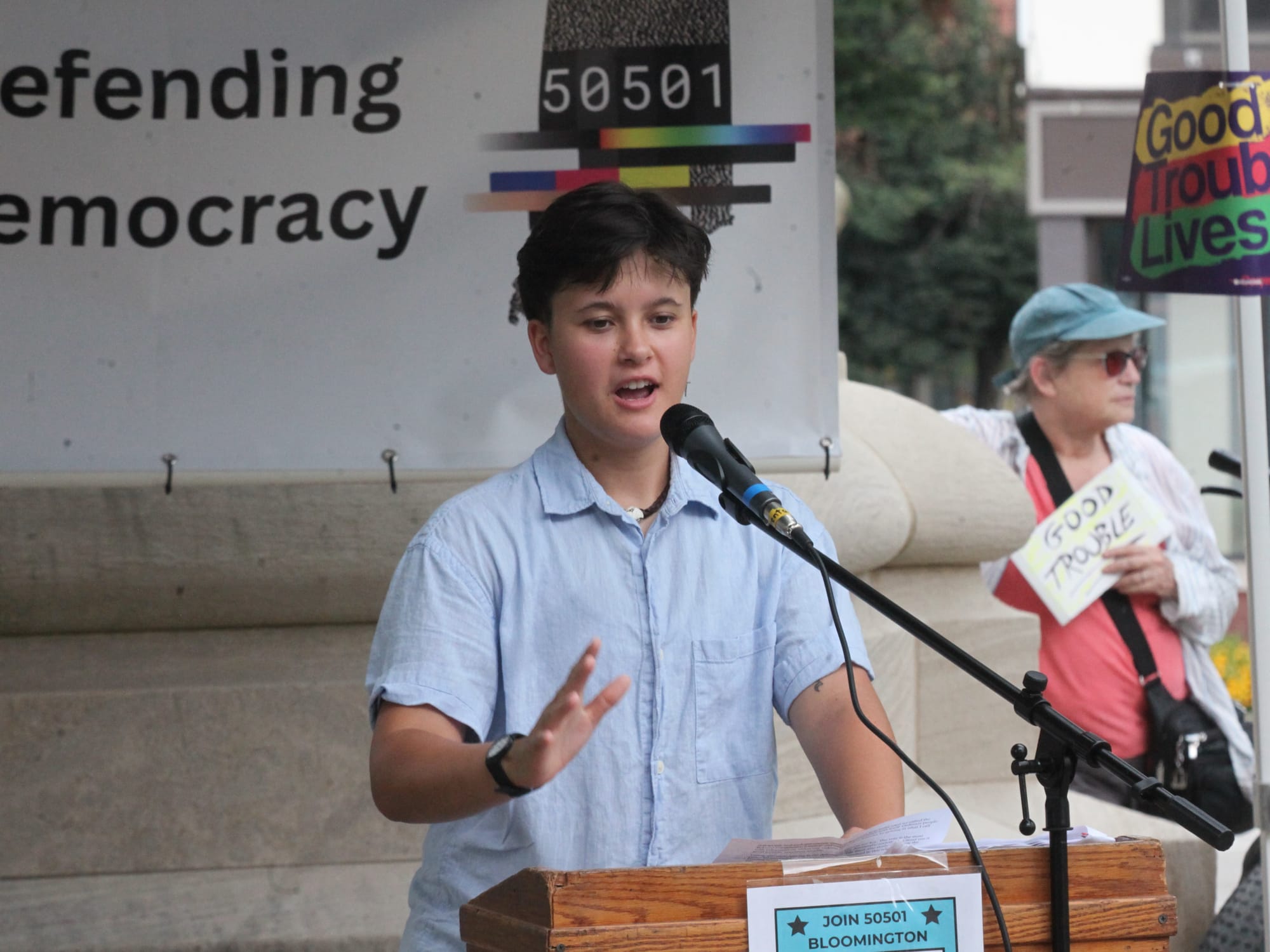
Left: Maddy Waters give Sandy Washburn a hug. Water is an incoming IU freshman. Washburn is an organizer with the 50501 Movement. Right: Maddy Waters reads aloud John Lewis's essay, written shortly before he died. (Dave Askins, July 17, 2025)
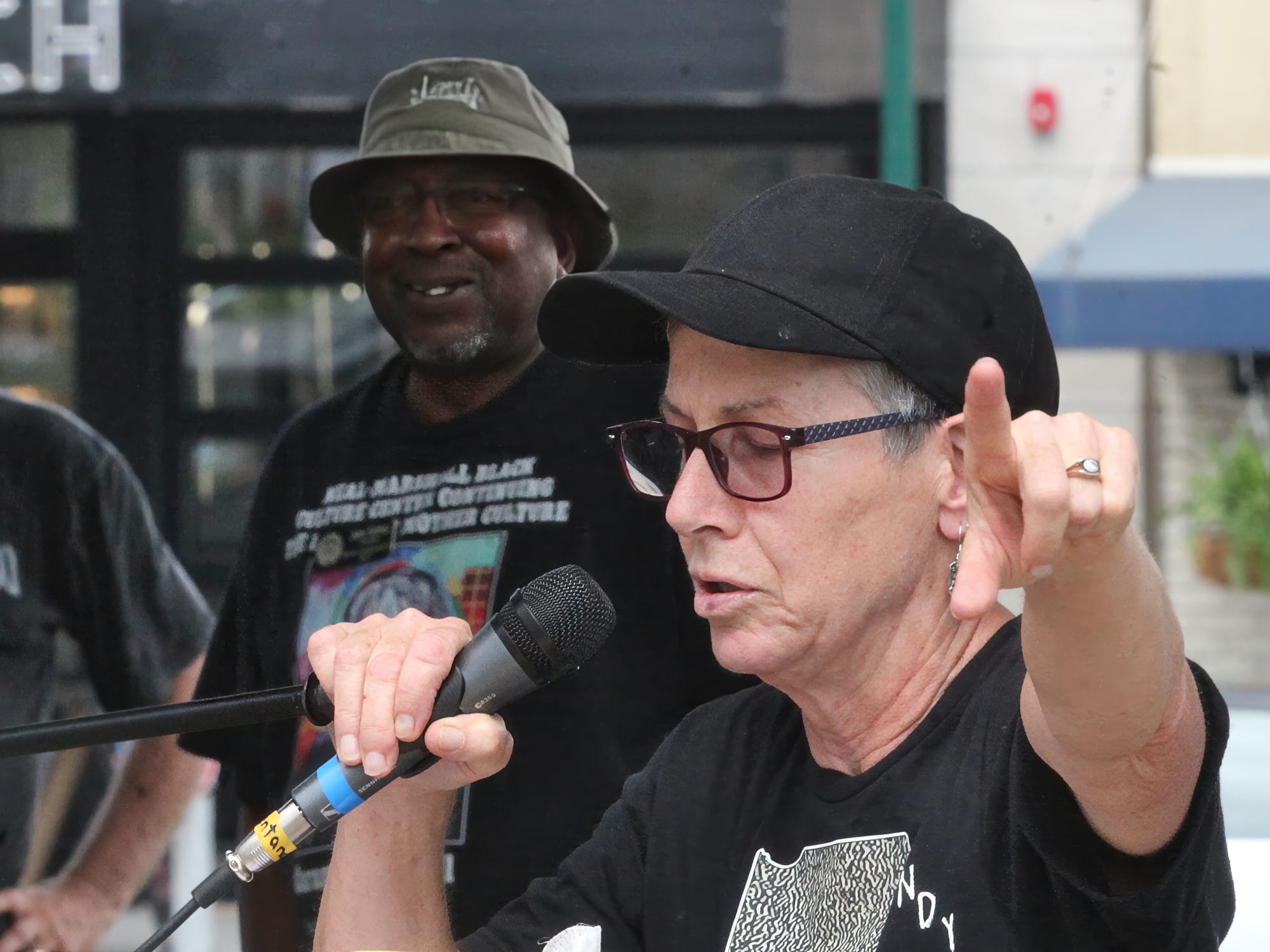
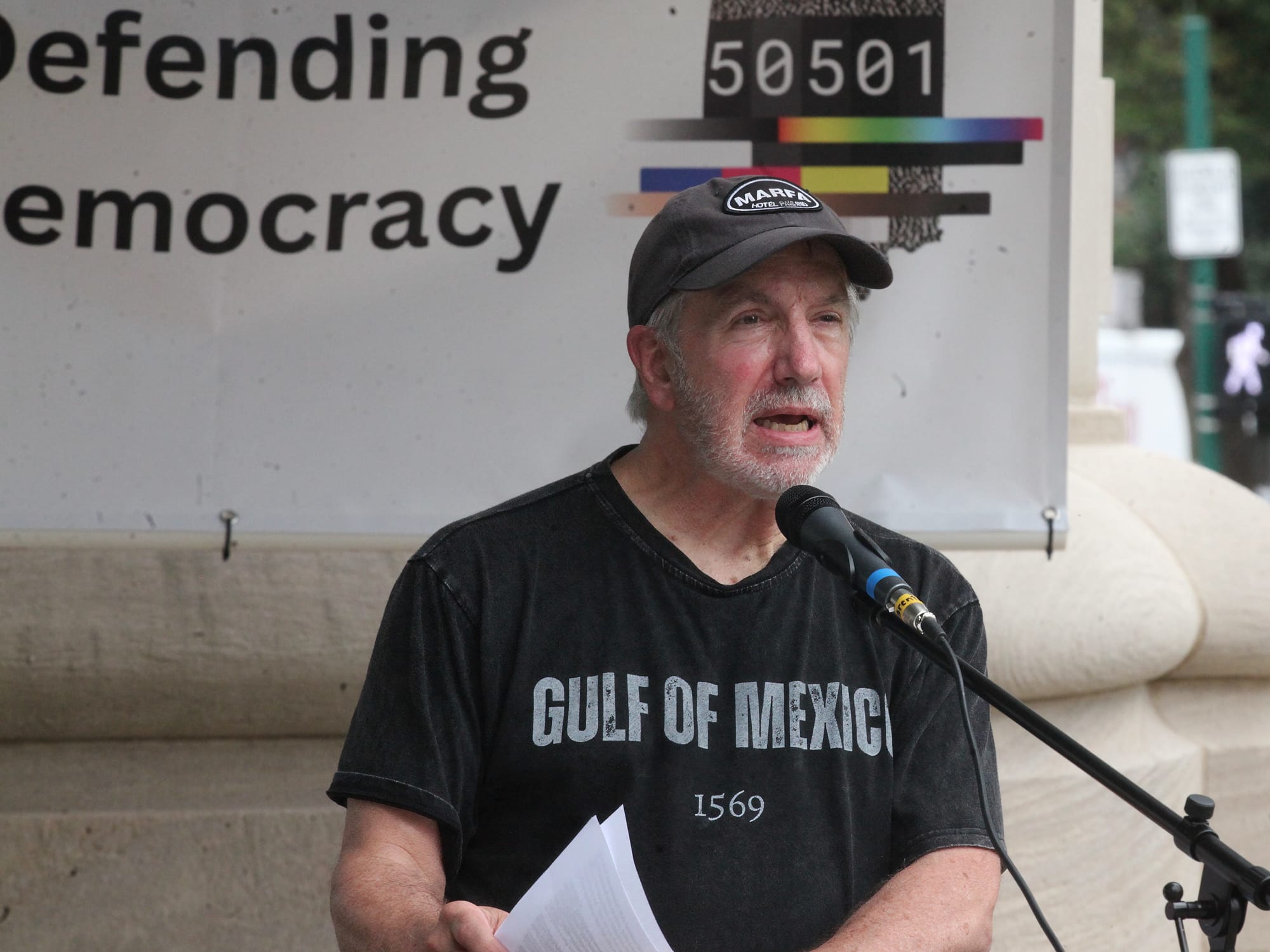
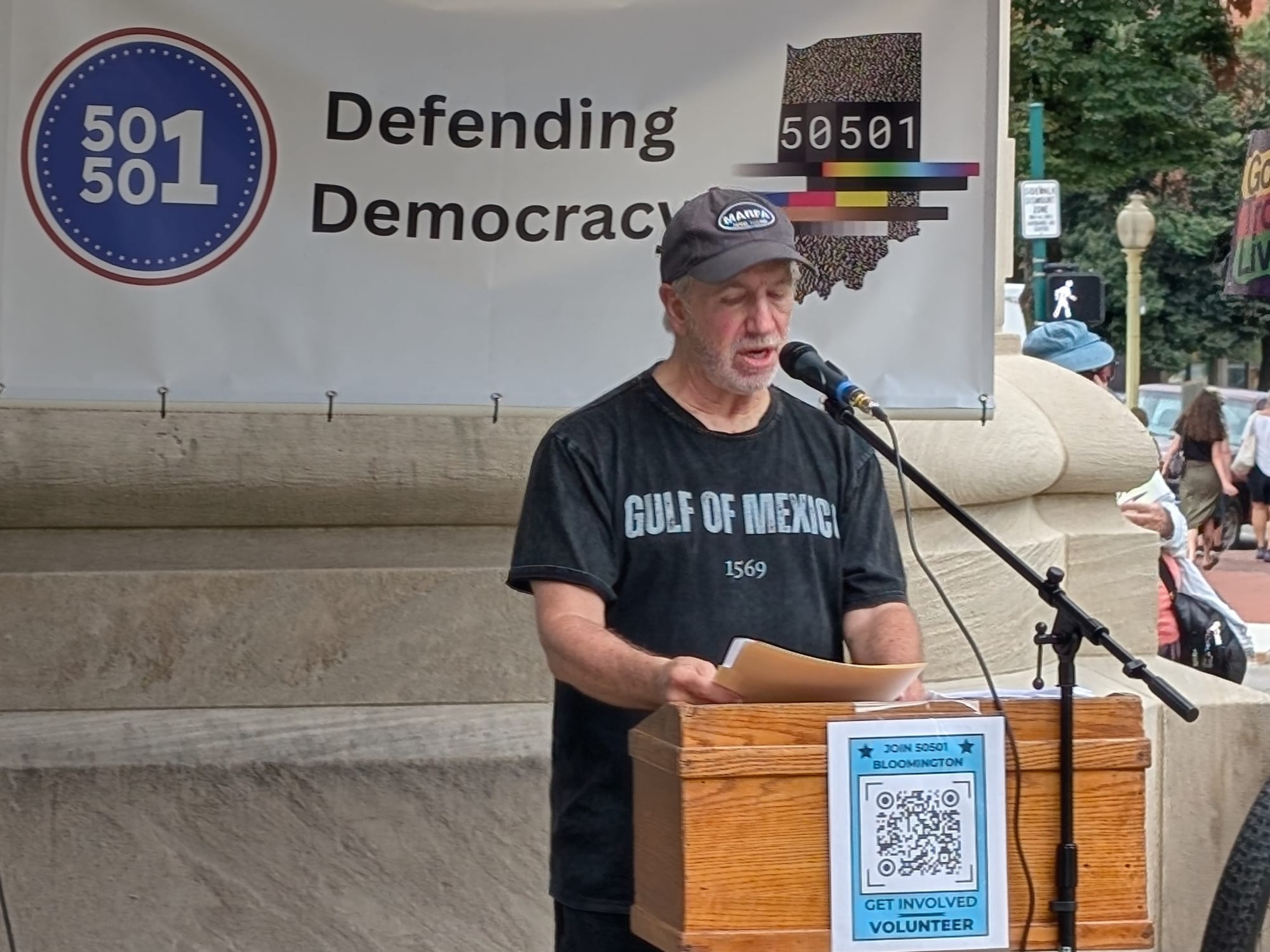
Left: Sandy Washburn, with the 50501 Movement. Middle and Right: Russ Skiba, IU emeritus professor with University Alliance for Racial Justice, addresses the rally on the topic of anticipatory compliance. (Dave Askins, July 17, 2025)
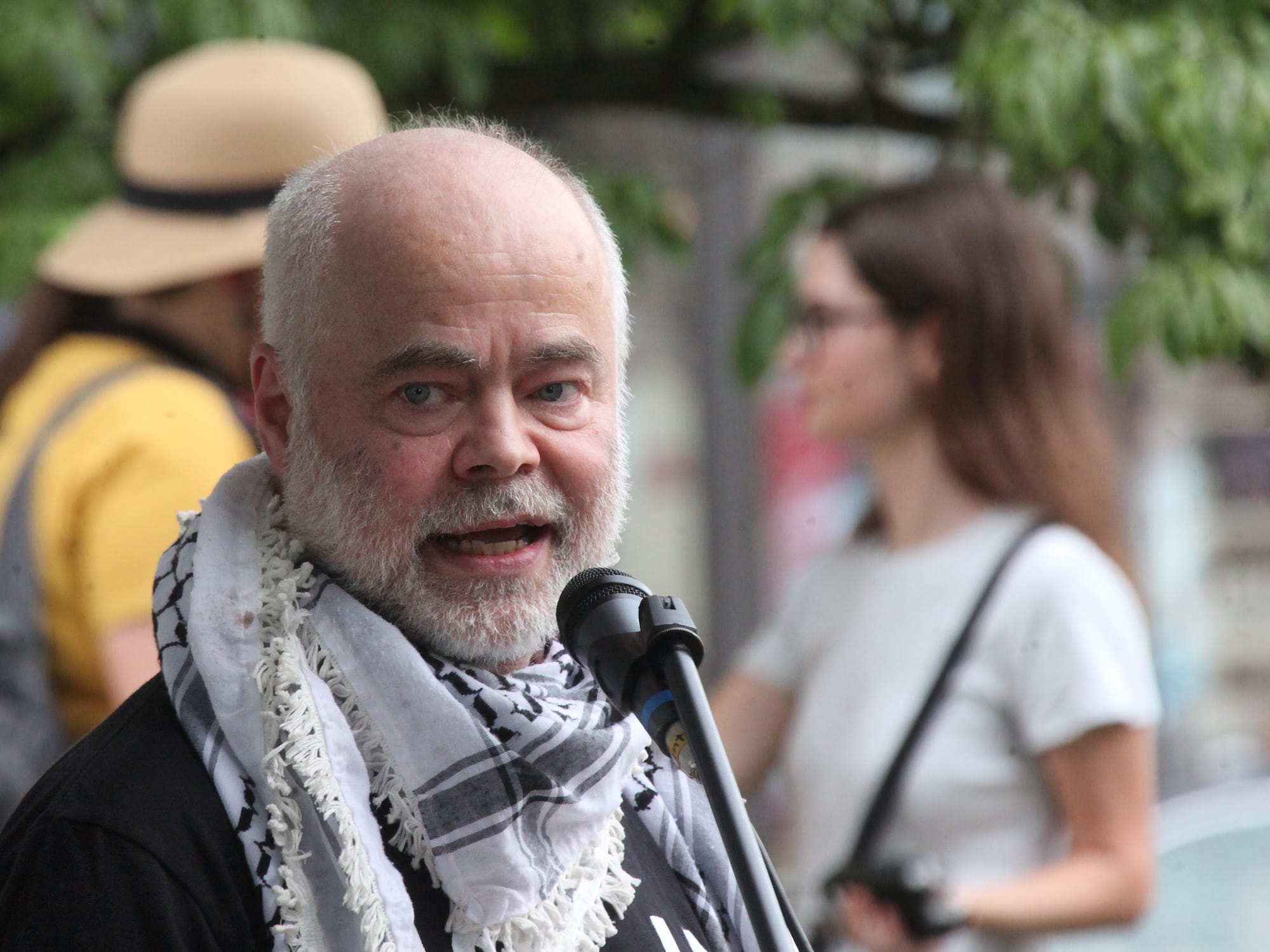
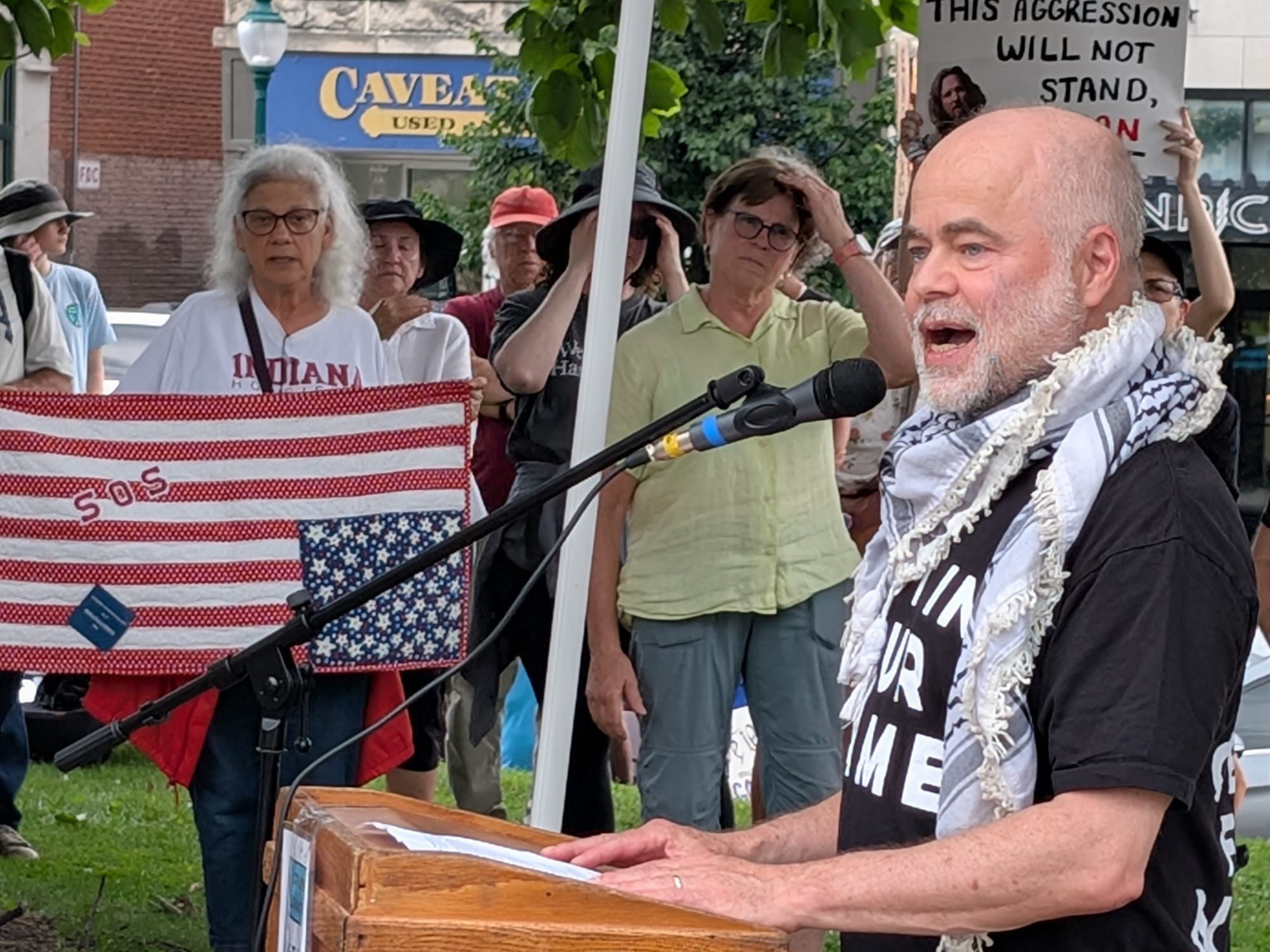
Benjamin Robinson, IU professor of Germanic studies, with Jewish Voice for Peace, addresses the rally on the topic of Palestinian rights: “The basic thought mobilizing the forces against racial equality and Palestinian liberation is that any affirmative action effort to address historic discrimination against people of color is anti-white. The same playbook has been used in targeting protesters calling for Palestinian rights.” (Dave Askins, July 17, 2025)
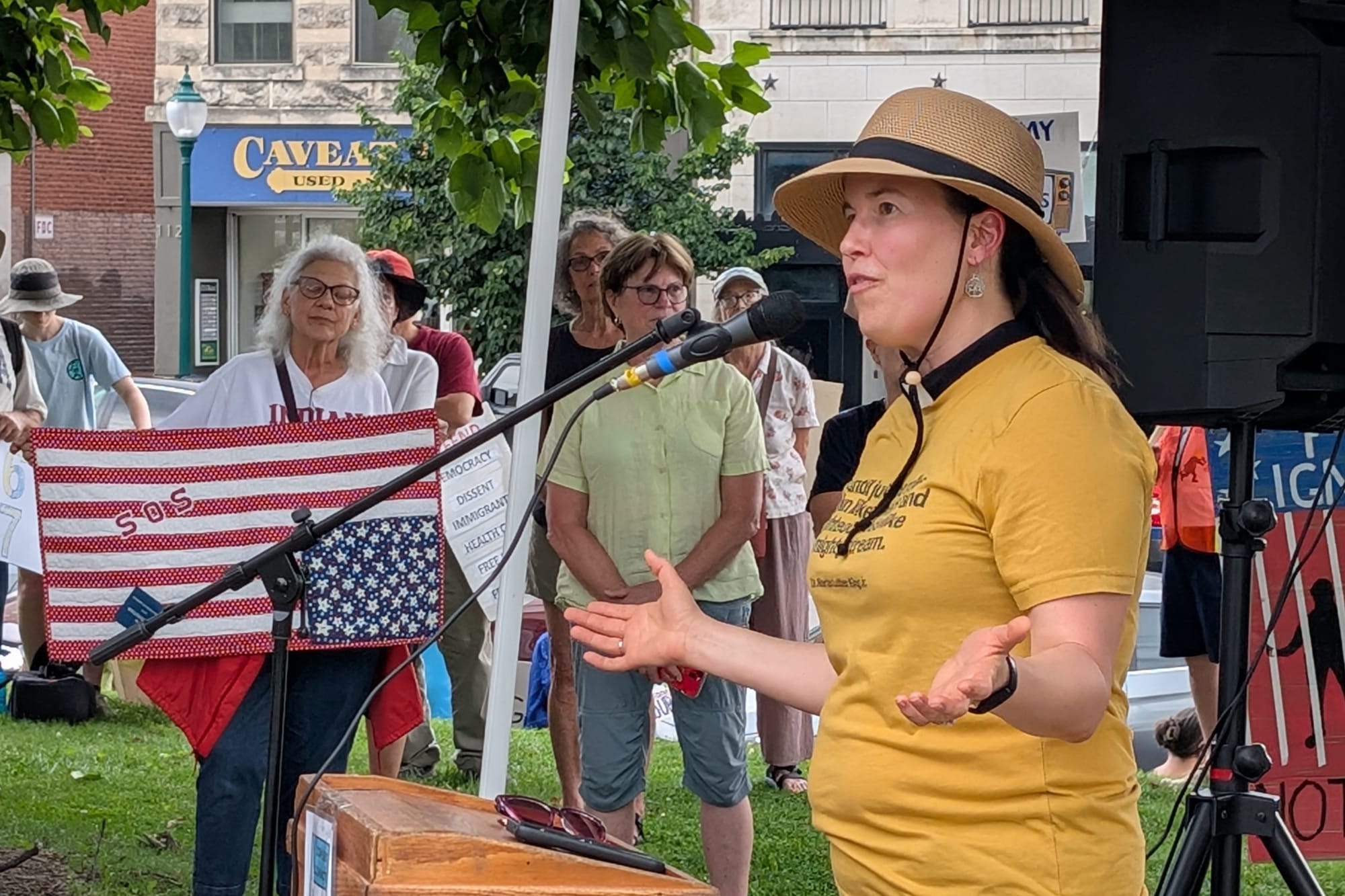
Left: Lisa Schubert Nowling, lead pastor at Bloomington’s First United Methodist Church, addresses the crowd on the topic of why she feels compelled to act: "I believe that Jesus has called me to action, and I believe that the church in the 21st Century cannot just be about saving souls, but having our souls saved ... in the way that we care for those who are marginalized, in the way that we overturn injustice and the way that we create a society, a country, and a world, where all are valued because they are made in the image of God." (Dave Askins, July 17, 2025)
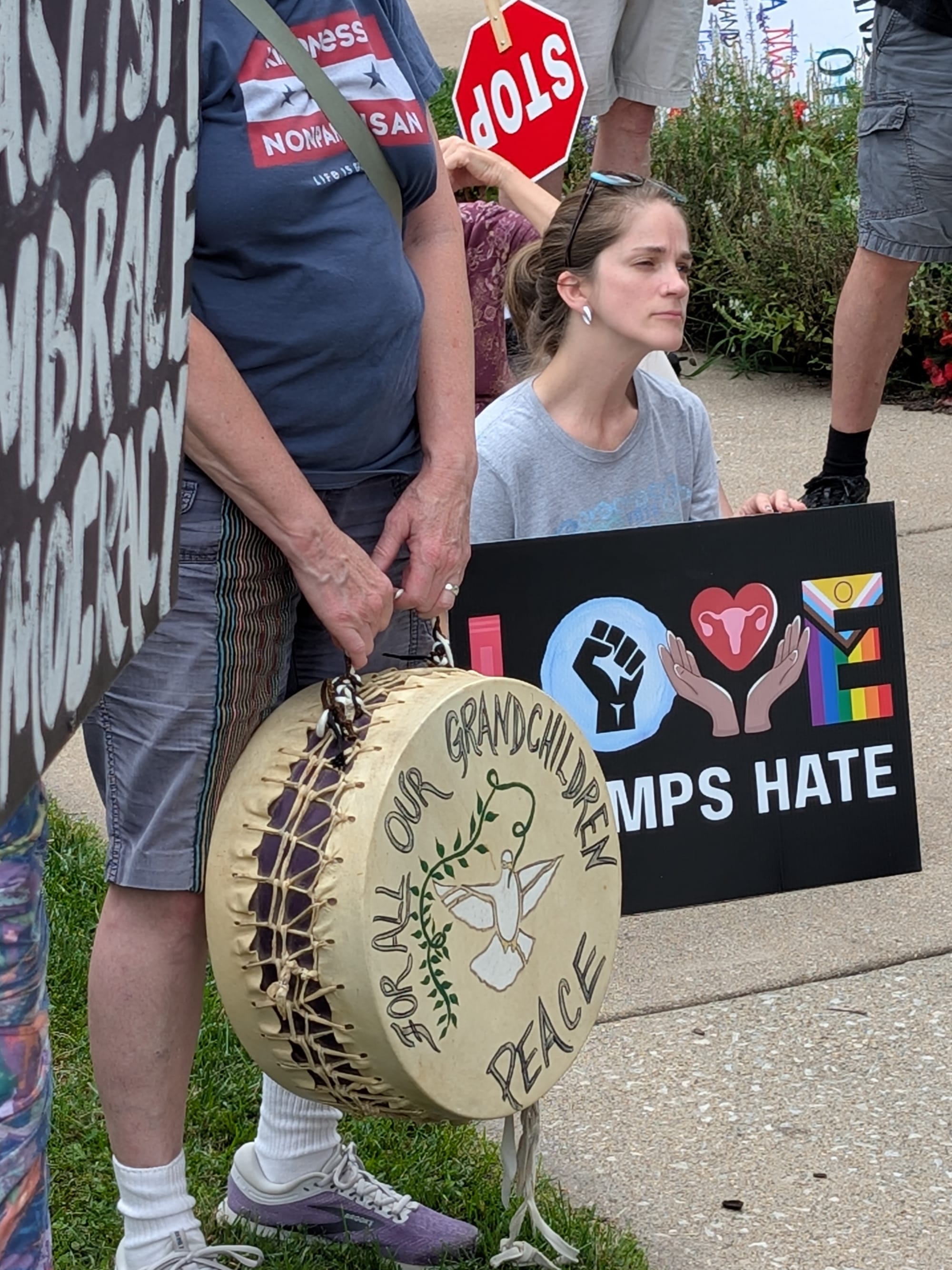
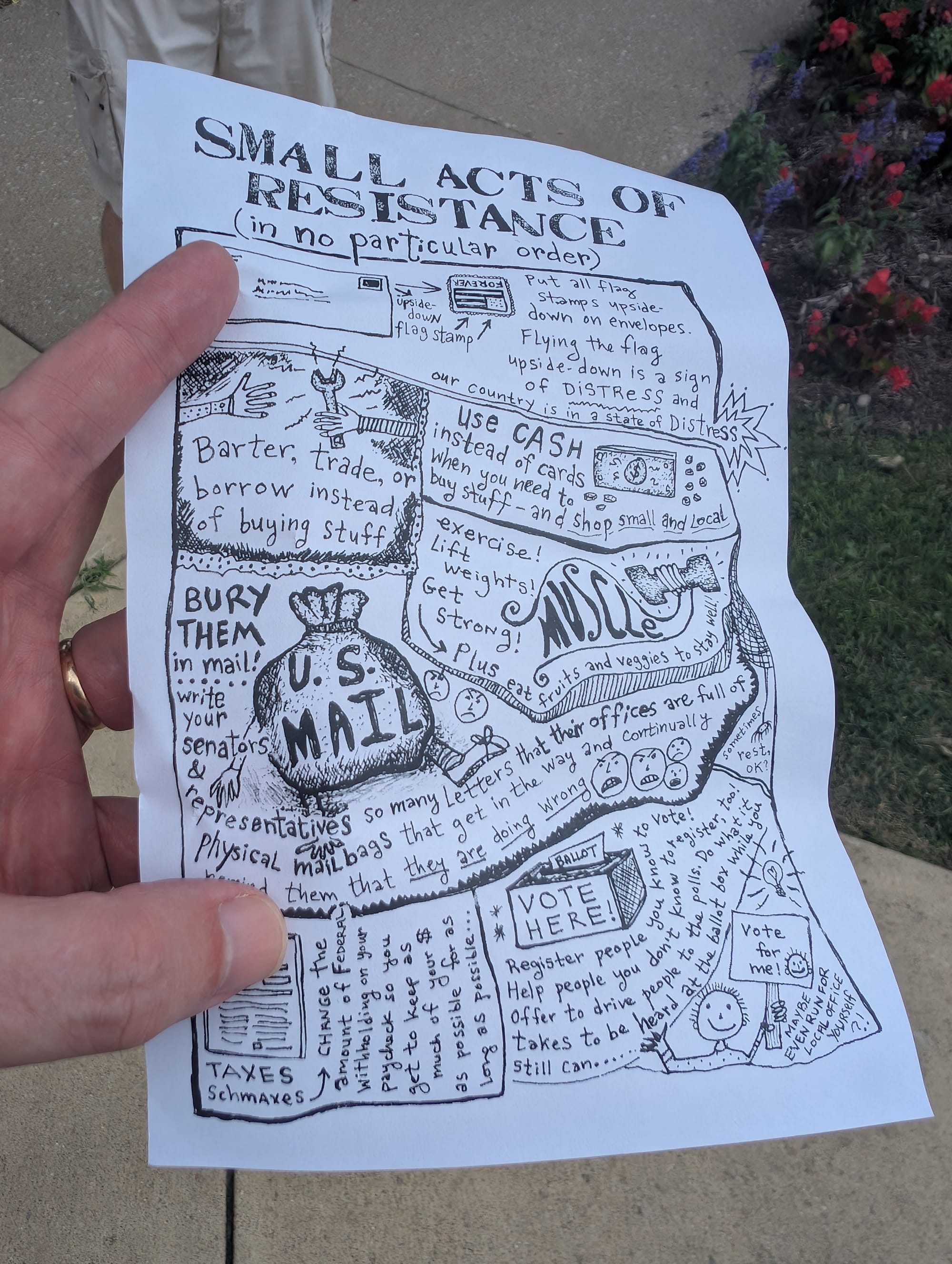
Signs and a flyer from Thursday’s rally. (Dave Askins, July 17, 2025)
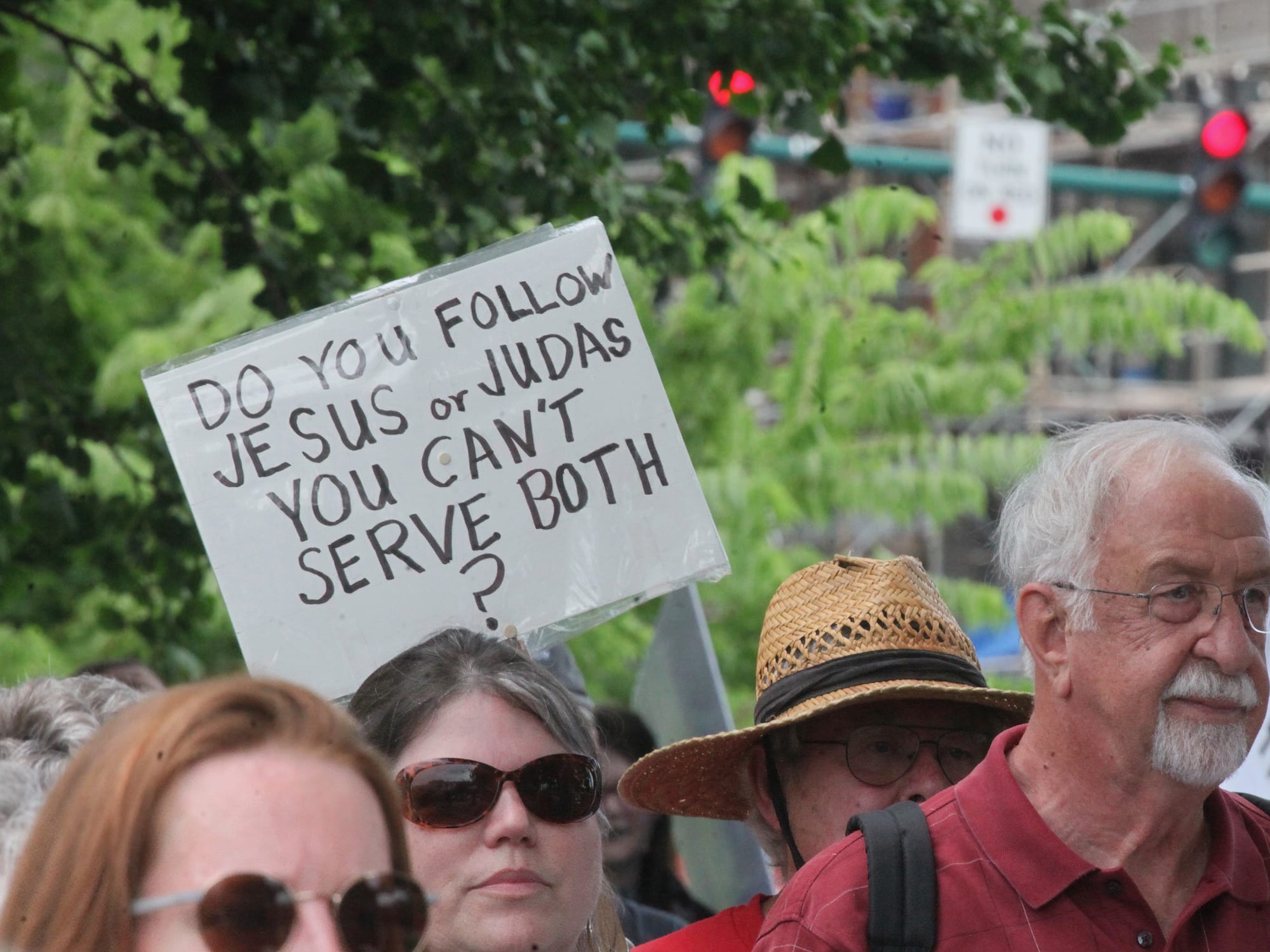
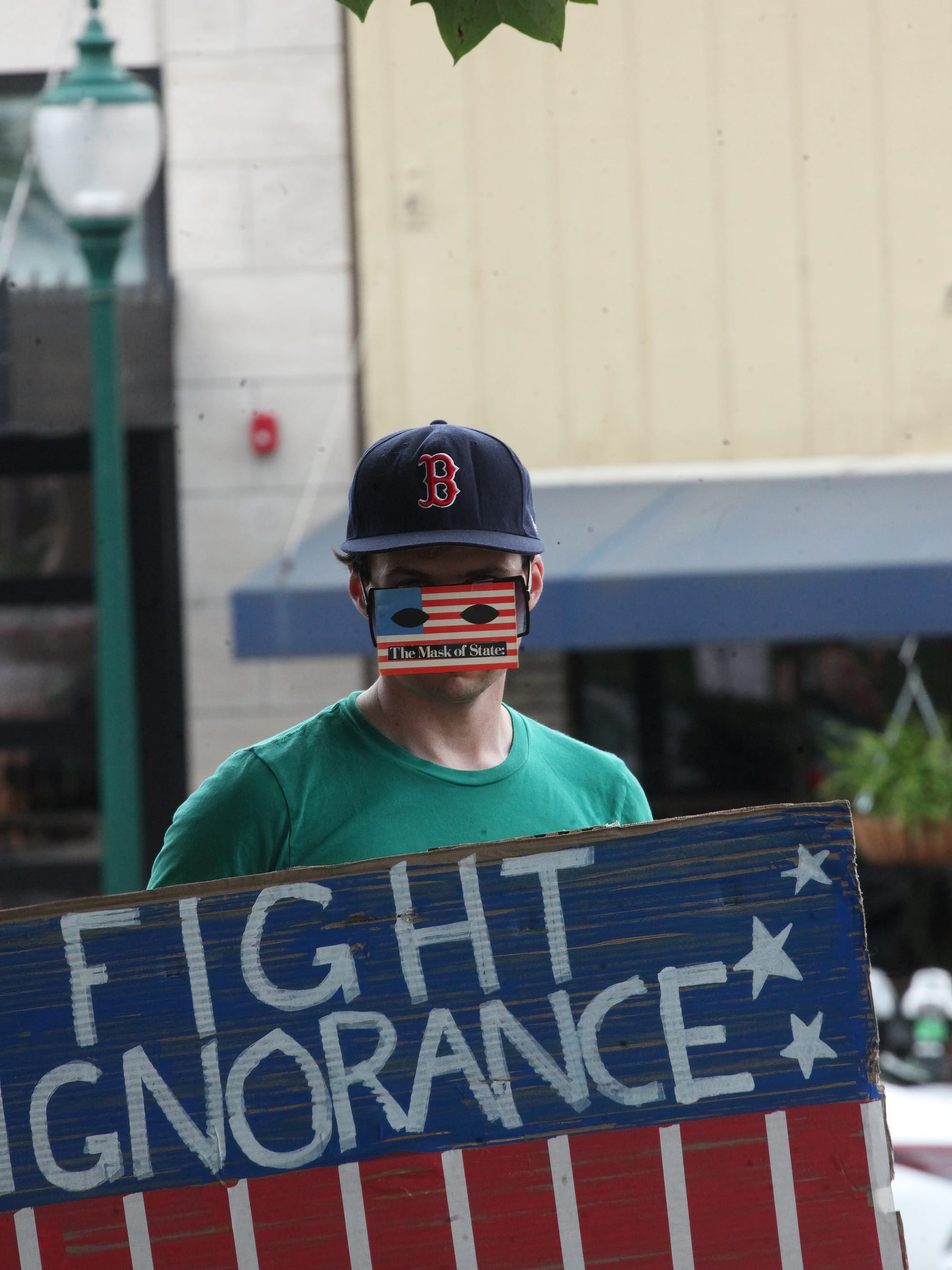

Signs from Thursday’s rally. (Dave Askins, July 17, 2025)

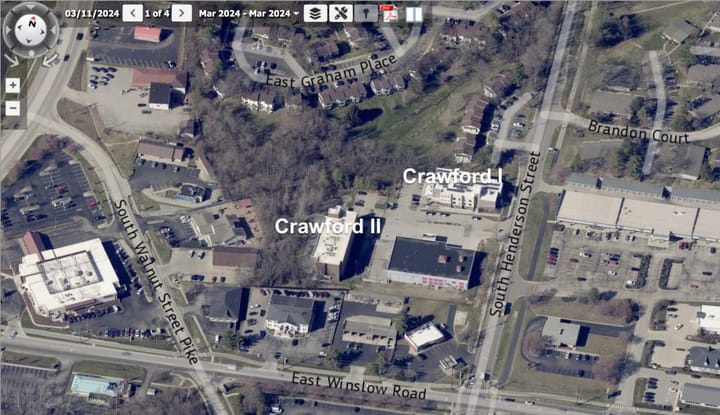
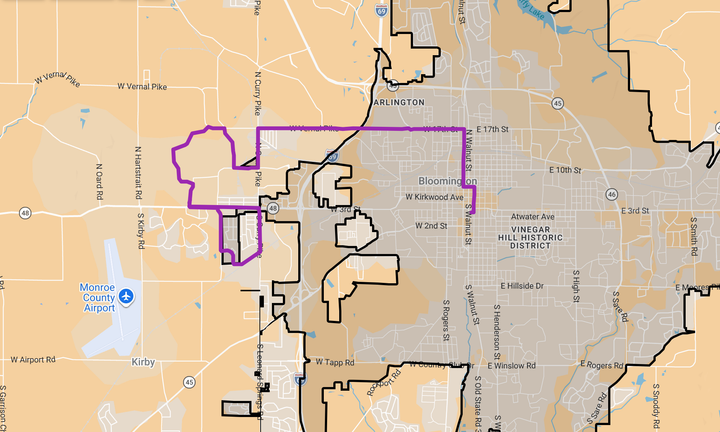
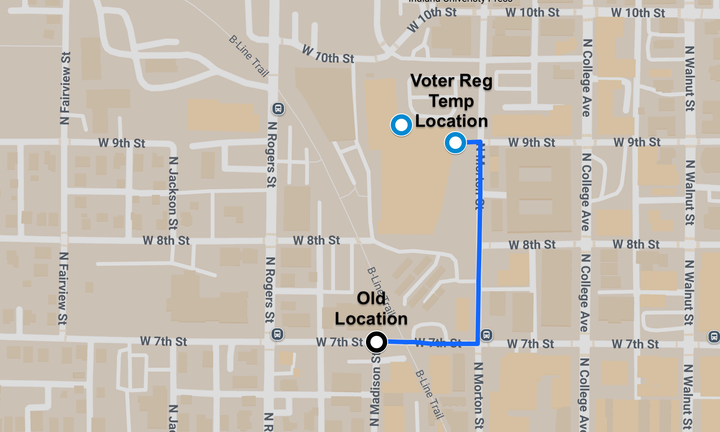
Comments ()